The prosecution has the burden of proof in your criminal case. Therefore, the onus is on them to present competent evidence of your guilt if they hope to obtain a conviction. That might sound obvious, but it’s important to remember that your criminal defense is about much more than just telling a more convincing story than the prosecution. It’s also about discrediting the state’s case and poking holes in the prosecution’s evidence.
The power of evidence suppression
One of the best ways to do this is to try to suppress the prosecution’s evidence. This simply means that you ask the court to find that certain pieces of evidence can’t be used against you at trial. If you’re successful in suppressing key evidence, then your chances of beating your charges can increase exponentially.
But what circumstances qualify for evidence suppression? Here are a few situations that could justify a motion to suppress in your criminal case:
- An illegal traffic stop: Law enforcement is required to follow the law. If they don’t, then any subsequently gathered evidence may be deemed tainted by that illegality and therefore rendered inadmissible at trial. This is known as the fruit of the poisonous tree These circumstances are oftentimes seen in the context of an unwarranted traffic stop that leads to the discovery of intoxication or possession of controlled substances. So, if the prosecution’s evidence against you stems from one of these traffic stops, then you should carefully scrutinize the circumstances to see if law enforcement had the requisite reasonable suspicion to initiate that stop.
- Failure to appear at a deposition: To best prepare your criminal defense, you have to find out what the prosecution’s witnesses know and how they’re going to testify at trial. The best way to do this is to depose those witnesses, which is where they give sworn testimony outside of court. But if you properly subpoena a witness and they fail to appear for a deposition, then you could be at an unfair disadvantage going into trial. That’s why you might be able to convince a court to bar that witness’s testimony.
- Chain of custody errors: The police have to follow strict protocols when it comes to evidence collection. After all, this is the only way to ensure that evidence isn’t tainted or otherwise compromised. Yet, all too often the police mishandle evidence, which could put you at risk of a wrongful conviction. Thus, you should analyze the evidence collection practices implemented by the police in your case, which could include looking at a breathalyzer test administration or the collection of narcotics from a vehicle.
Fight back against the prosecution
Prosecutors can be intimidating. This sometimes causes accused individuals to seek out plea bargains before they’ve really analyzed the facts of their case to see if there’s a better avenue to protect their future. Don’t let that happen to you.
Instead, think about reaching out to a criminal defense attorney who knows the rules of evidence and can utilize them to your advantage. By doing so, you may be able to push the prosecution back on its heels so that you can either secure a more favorable plea deal with lesser penalties or perhaps even get the charges against you dismissed. If you go to trail, you may even obtain an acquittal. The key is that you won’t know what’s possible in your case until you take a comprehensive approach to your criminal defense. That’s why competent and experienced legal teams like the one at our firm stand ready to assist.

